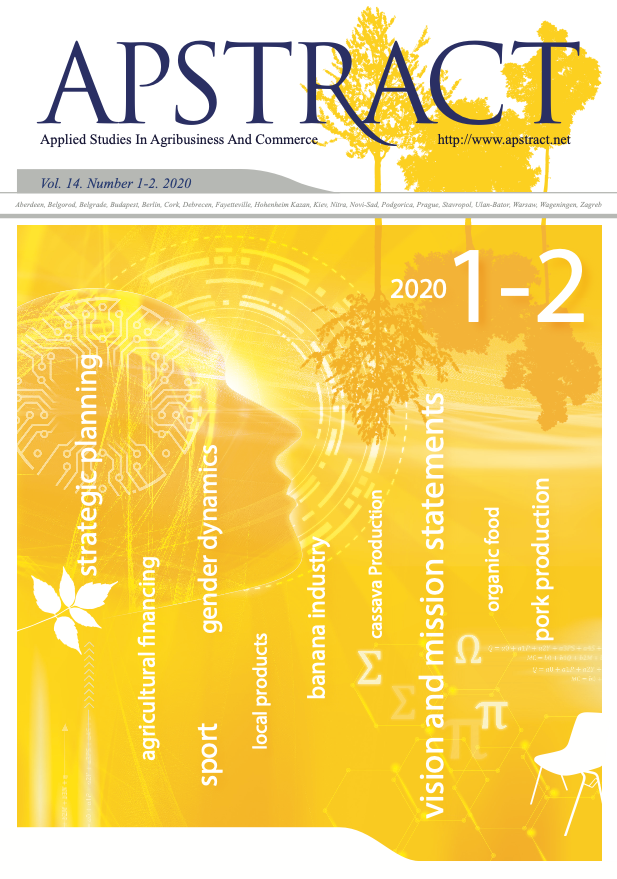Willingness to pay for locally produced organic foods by urban consumers in Sri Lanka
Author
View
Keywords
License
Copyright (c) 2020 Univesity o f Debrecen, Faculty of Economics and Business, Hungary

This work is licensed under a Creative Commons Attribution-NonCommercial 4.0 International License.
How To Cite
Abstract
Organic food consumption is gradually increasing among Sri Lankan consumers due to an increased awareness on healthy food. Some consumers ready to pay more for organic food, but it varies according to many factors. Therefore, the main objective of this study was to evaluate the urban consumers’ willingness to pay (WTP) for organically produced food in Sri Lanka. The specific objectives of the research were to investigate the socio-economic factors, the level of awareness on organic food, the present situation of buying, and the level of additional price ready to pay and analyze the impact of socio-economic factors on consumers’ willingness to pay. The research was conducted in urban Sri Lanka, covering capital cities of six urban districts of the country; Colombo, Galle, Gampaha, Kandy, Kurunegala, and Rathnapura. Data were collected from November 2016 to May 2018, from 600 consumers, by selecting 100 consumers per city. Data analyses employed were a descriptive analysis and binary logistic regression. Results revealed that, the most of the consumers were females, married, and with a comparatively higher level of education and monthly income. Most consumers had a significant level of awareness about organic food. A lesser proportion of consumers (24%) buys organic food at present, while the majority (52.4%) was willing to pay an extra price. Out of these consumers, the highest percentage (29.3%) prefers to pay 26% to 50% premium prices. As per the results of logistic regression, age, gender, monthly income, and education were the deciding factors for consumers’ willingness to pay a premium price for organic food. Results of this research are helpful for the development of production and marketing strategies and awareness programs for urban consumers on local organic food products.
JEL CODE: Q1, Q13


 https://doi.org/10.19041/APSTRACT/2020/1-2/2
https://doi.org/10.19041/APSTRACT/2020/1-2/2




